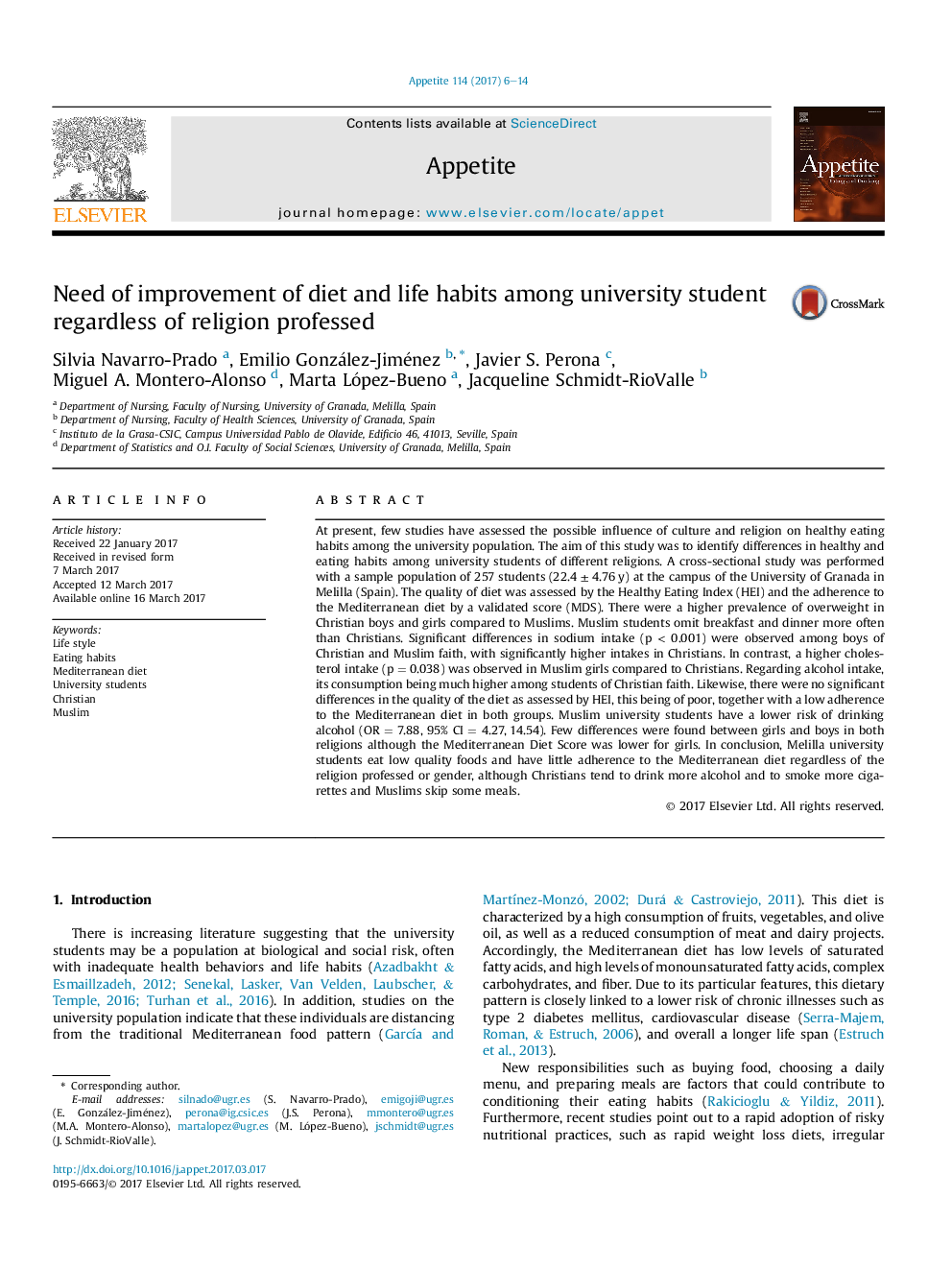| کد مقاله | کد نشریه | سال انتشار | مقاله انگلیسی | نسخه تمام متن |
|---|---|---|---|---|
| 5044289 | 1475366 | 2017 | 9 صفحه PDF | دانلود رایگان |
At present, few studies have assessed the possible influence of culture and religion on healthy eating habits among the university population. The aim of this study was to identify differences in healthy and eating habits among university students of different religions. A cross-sectional study was performed with a sample population of 257 students (22.4 ± 4.76 y) at the campus of the University of Granada in Melilla (Spain). The quality of diet was assessed by the Healthy Eating Index (HEI) and the adherence to the Mediterranean diet by a validated score (MDS). There were a higher prevalence of overweight in Christian boys and girls compared to Muslims. Muslim students omit breakfast and dinner more often than Christians. Significant differences in sodium intake (p < 0.001) were observed among boys of Christian and Muslim faith, with significantly higher intakes in Christians. In contrast, a higher cholesterol intake (p = 0.038) was observed in Muslim girls compared to Christians. Regarding alcohol intake, its consumption being much higher among students of Christian faith. Likewise, there were no significant differences in the quality of the diet as assessed by HEI, this being of poor, together with a low adherence to the Mediterranean diet in both groups. Muslim university students have a lower risk of drinking alcohol (OR = 7.88, 95% CI = 4.27, 14.54). Few differences were found between girls and boys in both religions although the Mediterranean Diet Score was lower for girls. In conclusion, Melilla university students eat low quality foods and have little adherence to the Mediterranean diet regardless of the religion professed or gender, although Christians tend to drink more alcohol and to smoke more cigarettes and Muslims skip some meals.
Journal: Appetite - Volume 114, 1 July 2017, Pages 6-14
